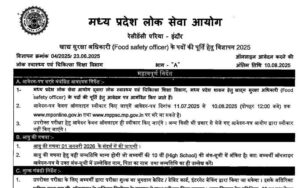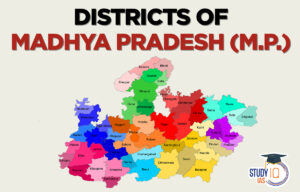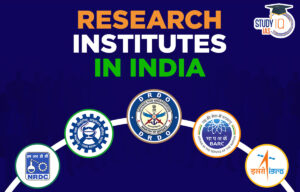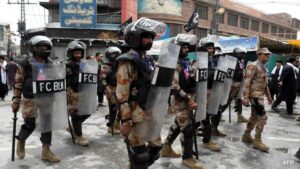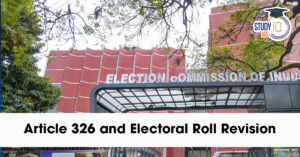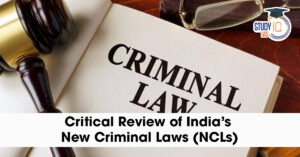StudyIQ is India’s Best Website for UPSC, State PSC, and Judiciary exam preparation. We offer a wide array of resources designed to help aspirants succeed in these highly competitive exams. Our platform provides UPSC Online Coaching, Daily Current Affairs, Government Schemes Updates, General Knowledge Updates, and State PSC Updates, ensuring that you stay well-informed and prepared at all times.
We cover a diverse range of subjects, including History Updates, Geography Updates, Indian Polity Updates, Environment Updates, Science Tech Updates, Economy Updates, and Art and Culture Updates. Our Biography Updates help you learn about influential figures that are often tested in various exams.
Trending Posts
- MPPSC FSO Recruitment Notification 2025 Out for 67 Vacancies – Apply OnlineJuly 12, 2025The Madhya Pradesh Public Service Commission (MPPSC) has published the MPPSC FSO Recruitment Notification 2025, declaring 67 ...
- UNESCO World Heritage Sites of India List From 1985 to 2025July 12, 2025The “Maratha Military Landscapes of India“, consisting of 12 forts, 17th–19th century in Maharashtra and Tamil Nadu, ...
- Consolidated Fund of India, Meaning and Expenditure FormationJuly 12, 2025The Consolidated Fund of India (CFI) is the most important and largest government fund in India, from ...
- Districts of MP List, Name, Importance, and Madhya Pradesh MapJuly 12, 2025Districts of MP: Madhya Pradesh (MP), also known as the “Heart of India,” is centrally located and ...
- Research Institutes in India List, Check Top Research CentresJuly 12, 2025Research Institutes in India play a crucial role in the scientific, technological, agricultural, medical, environmental, and social ...
- Operation Baam: Baloch Separatist Group Launches Major Coordinated Attack in PakistanJuly 11, 2025In a significant escalation of the long-standing insurgency in Pakistan’s Balochistan province, the banned separatist group Balochistan ...
- Article 326 and Electoral Roll Revision and Controversy in BiharJuly 11, 2025Why in the news? The Election Commission of India (ECI) has recently launched a Special Intensive Revision ...
- Critical Review of India’s New Criminal Laws (NCLs)July 11, 2025Context: On July 1, 2024, India enacted a significant reform in its criminal justice system by implementing ...
- Critical Minerals, Key Issues, Importance and ChallengesJuly 11, 2025Context: India faces strategic and economic risks in its green transition due to heavy reliance on imports ...
Government Schemes
- Mukhyamantri Majhi Ladki Bahin Yojana, Objective, Eligibility Criteria and Benefits
- WHO Launched 3 by 35 Initiative targets Tobacco, Alcohol and Sugary Drinks
- Shrishti Digital Studio at IIPA, Key Features, Purpose and Impact
- BHARAT Initiative: Establishing Healthy Ageing Parameters
- C-FLOOD Platform – A Unified Inundation Forecasting System
- ESIC Launches SPREE 2025 to Expand Social Security Coverage
History
- Nagari Pracharini Sabha Revival: Background, Key Publications and Legacy
- Ryotwari System in India, Features, Impacts and Drawbacks
- Battle of Plassey, History, Causes, Impacts and Significance
- Maharashtra’s Mendrachi Vancharai System
- Keeladi Excavation: Uncovering the Ancient Tamil Civilization
- Sanyasi Revolt, Objectives, History, Reason and Important Leaders
Geography
- Critical Minerals, Key Issues, Importance and Challenges
- Grasslands in the World, Map, Types and Significance
- Places in News for UPSC 2025 for Prelims and Mains Exam
- Earthquake in Delhi: Causes, Impacts and Preparedness Tips
- Iron Ore, Types, Uses, Distribution in India and in World Map
- Low Pressure System and Madden-Julian Oscillation (MJO)
Indian Polity
- Consolidated Fund of India, Meaning and Expenditure Formation
- National Register of Indian Citizens (NRIC), Objectives and Benefits
- Special Intensive Revision (SIR) in Bihar of Electoral Rolls
- Admiralty (Jurisdiction and Settlement of Maritime Claims) Act, 2017
- Enemy Property Act in India, Background and Key Provisions
- Phone-tapping in India, Legal Framework and Key Safeguards
Environment
- Marlin Fish: Species, Features, Appearance and Conservation
- Great Hornbill (Buceros bicornis): Habitat, Physical Features and Conservation Status
- Climate Change Impact On India’s Coastal Communities
- Commission for Air Quality Management (CAQM)
- Solar Photovoltaic (PV) Cells, Types, Key Components and Constraints
- Supreme Court Bars Ex-post facto Environmental Clearance
Economy
- Cat Bonds (Catastrophe Bonds), Meaning, Purpose, Pros and Cons
- What is Visible and Invisible Trade with Examples
- Chemical Industry in India: Powering India’s Participation in Global Value Chains
- Dynamic Pricing: What It Is and Why It’s Important
- Asset Monetisation Strategy for Road Sector and Its Significance
- World of Debt Report 2025, Key Highlights and Reforms
Biography
- Dr. Sarvepalli Radhakrishnan Biography, Literary Works and Legacy
- Dr. Shyama Prasad Mukherjee Biography, Legacy, and Contributions
- Savitribai Phule Biography, Early Life, Contribution and Legacy
- Tansen Biography, Musical Legacy and Master of Dhrupad
- Sree Narayana Guru (1856–1928), Key Movements and Literary Works
- Mangal Pandey Biography, History and Role in Revolt of 1857
Best UPSC IAS Preparation Website 2025
The objective of the StudyIQ is to provide every student across the country with affordable resources that can help them in their preparation for UPSC, State PSC and Judiciary exams.
StudyIQ covers all the recruitment information from the start till the end. After the release of the notification of the exam, we cover the detailed information that a candidate wants to know about a particular recruitment, such as the notification, important exam dates, vacancy details, eligibility criteria, exam pattern, syllabus, and educational qualifications. We also provide you with a direct link to download the notification PDF directly and steps to download or apply for the particular examination from the respective official website.
StudyIQ provided appropriate study material with the test series, book kit, mock test, previous years’ question papers with solutions, cut off, and daily MCQs. We provide you with vast knowledge of all subjects required for examination, section-wise knowledge, and also videos on the daily relevant current affairs topics on our StudyIQ YouTube platform.
Our test series, daily study notes/PDF, and mock tests help candidates prepare themselves on a daily basis for the UPSC, State PSC, and Judiciary examinations. This will help candidates increase their speed and Accuracy without going to any of the big cities for preparation.
Candidates can attempt proper section-wise mock tests for all topics at their home comfort zone. We also provide daily MCQs for a particular topic of the subject.
As we see there are ample amounts of study materials available in the market that sometimes dilute the focus of the candidates from the focused area. So, the StudyIQ team provides you with all relevant information in one place in a systematic way that can help you figure out the strategy and planning to complete their syllabus in a timely manner.
Best Website for UPSC Preparation 2025
The Union Public Service Commission conducts the UPSC CSE exam every year for the recruitment of various vacancies for the various posts of Group A and Group B under the central government. UPSC Civil Service 2025 is the biggest and most prestigious government examination. StudyIQ provides you with detailed information regarding the notification, exam pattern, eligibility criteria, important dates and syllabus, and Results.
Best UPSC Civil Service Preparation Website FAQs
Q. How do I start my UPSC preparation?
Ans. Candidates can start their UPSC preparation from the StudyIQ platform in a systematic way where you can find Daily Current Affairs, Burning Issues, Hindu Analysis, PIB Analysis and many more.
Q. How to cover current affairs when the IAS preparation syllabus is so vast?
Ans. Current Affairs for the IAS preparation is a very important part for which you can refer the StudyIQ’s Daily Current Affairs news Analysis and monthly magazine.
Q. Is self-preparation for the IAS exam enough to clear it?
Ans. Self-preparation for the IAS exam is a good choice but you need to start preparation in an organized manner with relevant study materials and proper strategy for which the StudyIQ platform can play an important role to provide all the UPSC-related materials and guidance at a place.
Q. Where to download UPSC study materials/IAS study material PDF?
Ans. Candidates can easily download UPSC study materials/IAS study material PDFs from India’s best UPSC platform StudyIQ.
Q. What are the Study Materials for GS preparation for IAS?
Ans. The Study Materials for GS preparation for the IAS exam include mainly NCERT from classes 6th to 12th, Daily Current Affairs & News analysis integrate with the static part and also refer to StudyIQ’s reference books such as Indian Geography, Indian Polity, Indian Economy, Indian Art & Culture and Fundamentals of Geography.
Q. Which website is best for the UPSC IAS exam preparation?
Ans. StudyIQ is the best platform for every aspect of the UPSC IAS exam preparation from scratch.

